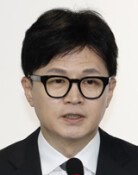Foreigners think of North Korea first when describing South Korea
Foreigners think of North Korea first when describing South Korea
Posted July. 02, 2013 06:12,
Students at a school in Sweden were recently told to write three words to describe South Korea. Surprisingly, the most widely used words were North Korean nuclear development and missile firing, followed by leadership succession from Kim Il Sung to Kim Jong Il and Kim Jong Un, and political violence at South Korean National Assembly. Others mentioned included Korean War, 1988 Olympic Games, World Cup soccer, Korean Wave and Gangnam Style.
Foreigners still associate South Korea with negative images related to North Korea, followed by political violence by politicians. Words with negative images remain etched on Swedish students instead of positive images such as one of the 10 economic powerhouses, world No.1 products, and companies that make them.
South Korean administrations have poured massive state money to raise South Korea`s national status and to improve national image, but negative images are expanding instead of declining.
The problem is that such negative image is not limited to Northern Europe. South Korean scholars working in European countries say that Korea discount is prevalent there adding that South Korea is frequently mentioned in media on negative images associated with North Korea, and violence and incompetence of South Korean politicians. Various reasons work to explain such phenomenon.
North Korea`s missile firing and nuclear development after the death of Kim Jong Il has attracted the eyes of the world, having a decisive impact on the formation of an adverse image. Many European people are still not aware that South Korea and North Korea are two countries and think them as one. South Korea is introduced as the Republic of Korea, but many ask whether this indicates the South or the North. This means that it has become rooted in foreigners` minds that South Korea is always associated with North Korea.
Scenes of South Korean politicians` violent acts are also a major factor spreading negative country image. South Korean politicians are playing a decisive role of spreading the countrys unbeautiful images worldwide. Occupation of platform at parliament and tear gas politics appear in world news providing mockery. Politicians at regional governments are adding to woes; their recent disorderly decision making on the issue of provincial government-funded Jinju Medical Center and the ensuing physical fighting were reported on media around the world, expanding a sentiment that South Korean politics is third rated.
The scenes South Korean central and regional government officials are creating will certainly have negative impact on the country`s international creditworthiness and national status. Political violence of Korea is spreading worldwide through the Internet. Worse yet, violent images at schools are introduced as South Korea`s representative images on the Internet, and even children in foreign countries think of South Korea as the most hostile country fond of fighting each other.
If South Korean politicians are concerned about the country`s future, they should think of ways to raise national status since the world lives in an information communications revolution. Political uncertainty including gossiping and revealing on the controversy about abandoning Northern Limit Line is certainly not what politicians should do if they are concerned about the country`s future.
Opposition parties should disentangle the national affairs by coming to the tables in parliament instead of going to streets. Street politics are an action of giving up democracy. Leading party`s incompetent, sideliner and abandoning politics are to blame for opposition parties` going to streets. Attack politics to calm criticism on corruptive elections sparked by alleged online postings by the National Information Service are the biggest factor making opposition parties give up politics. Both the leading and opposition parties should take the responsibility.
Politicians should respect the public in a genuine manner. If they really care for the public, they should stop wasting time with consumptive disputes and street politics and return to politics for the people.
There is no future for South Korean politics without a change from political parties and politicians. Political and party reforms start from respecting the public not placing them below politicians. If they fail to approach the general public with democratic and political visions thus just repeatedly reorganizing themselves, South Korean politics will only witness reverse growth.
Politicians should stop being obsessed in gaining votes and play fair to gain good future evaluation. Political compromise and conversation, persuasion of and communication with the public will offer new guidelines for South Korean politics, upgrade the level of Korean politics, and ultimately the country`s national status.







